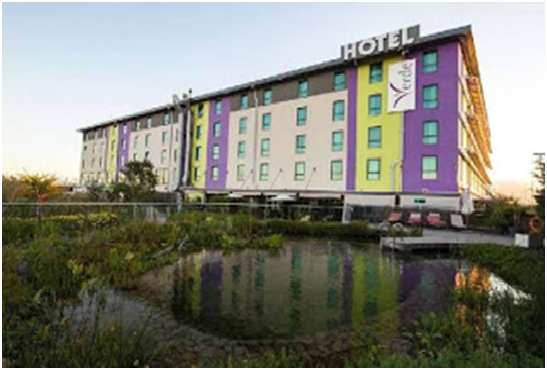
“The hotel industry must reduce its carbon emissions by 66% by 2030 and 90% by 2050.” This was the finding of a study commissioned by the International Tourism Partnership in 2017.
The study highlights the urgent need for the hotel industry to drastically reduce carbon emissions in order to align with science-based targets to keep global heating below the 2 ̊C threshold and avoid run-away climate change.
Historically, the hospitality sector has had a substantial environmental footprint not only through its energy and carbon impact but also through water consumption, as well as the use of consumable and durable goods and hazardous waste creation.
According to Dana Communications “Hotels consume energy for HVAC operations, lighting, fuel and other power needs. Water is used for bathrooms, F&B [food and beverage], and laundry, as well as other general operations (irrigation, cleaning and maintenance). Waste is generated by the disposal of paper, batteries, bulbs, furniture, equipment, appliances and more.”
As such, there is an evident and increasingly urgent need for sustainable hospitality practices.
What is Sustainable Hospitality?
According to André Harms, sustainability consultant, founder of Ecolution Consulting and recent SUMAS guest lecturer: “Sustainable hospitality means rethinking hospitality as a sustainable practice. It means that every aspect of the hospitality industry is considered through the lens of sustainability. From design to construction/refurbishment to operation both internally in terms of consumption and behavior as well as externally in terms of procurement communications and commitments, etc.”
Harms were the lead sustainability consultant for one of the greenest hotels in the world: Hotel Verde based in Cape Town, South Africa. The hotel is the first hotel in the world to have been certified by the United States Green Building Council with a Double LEED platinum certification for both design + construction and operation.

“Hotel Verde has a vast array of passive, technical and operational interventions which make it more sustainable,” says Harms. These include:
- Energy efficient design
- 220 Solar panels
- 3 vertical axis wind turbines
- A highly efficient HVAC coupled to a geothermal loop system which draws energy from the ground
- Regenerative drive elevators and
- Grey water recycling system
- Low-flow tap fittings and showerheads
- Waterwise landscaping and drip irrigation
- An operational materials management plan (for more sustainable procurement and waste reduction) coupled to strict waste separation and upcycling, donation, composting and recycling practices. The hotel diverts over 5% of waste from landfill on average
- Sustainability interwoven into all hotel standard operating practices/procedures
- Biodiversity management and eco pool
- Employee engagement programmes
- A carbon neutral hotel experience to guests by offsetting the remaining impact on behalf of the guest.
“Hotel Verde really is a prime example of what can be achieved when it comes to Sustainable Hospitality” says Harms, who lectured as part of the SUMAS Sustainable Hospitality Management programs. “As the need for more urgent sustainable action becomes increasingly prevalent, it is my hope that the best practices that have been achieved with Hotel Verde will soon become standard practice for hotels all around the world.”
Sustainable Hospitality at SUMAS
If you are interested in a career in sustainable hospitality, SUMAS offers a variety of programmes. Browse the programmes below or contact us today for more information.

 Log in with Facebook
Log in with Facebook 







